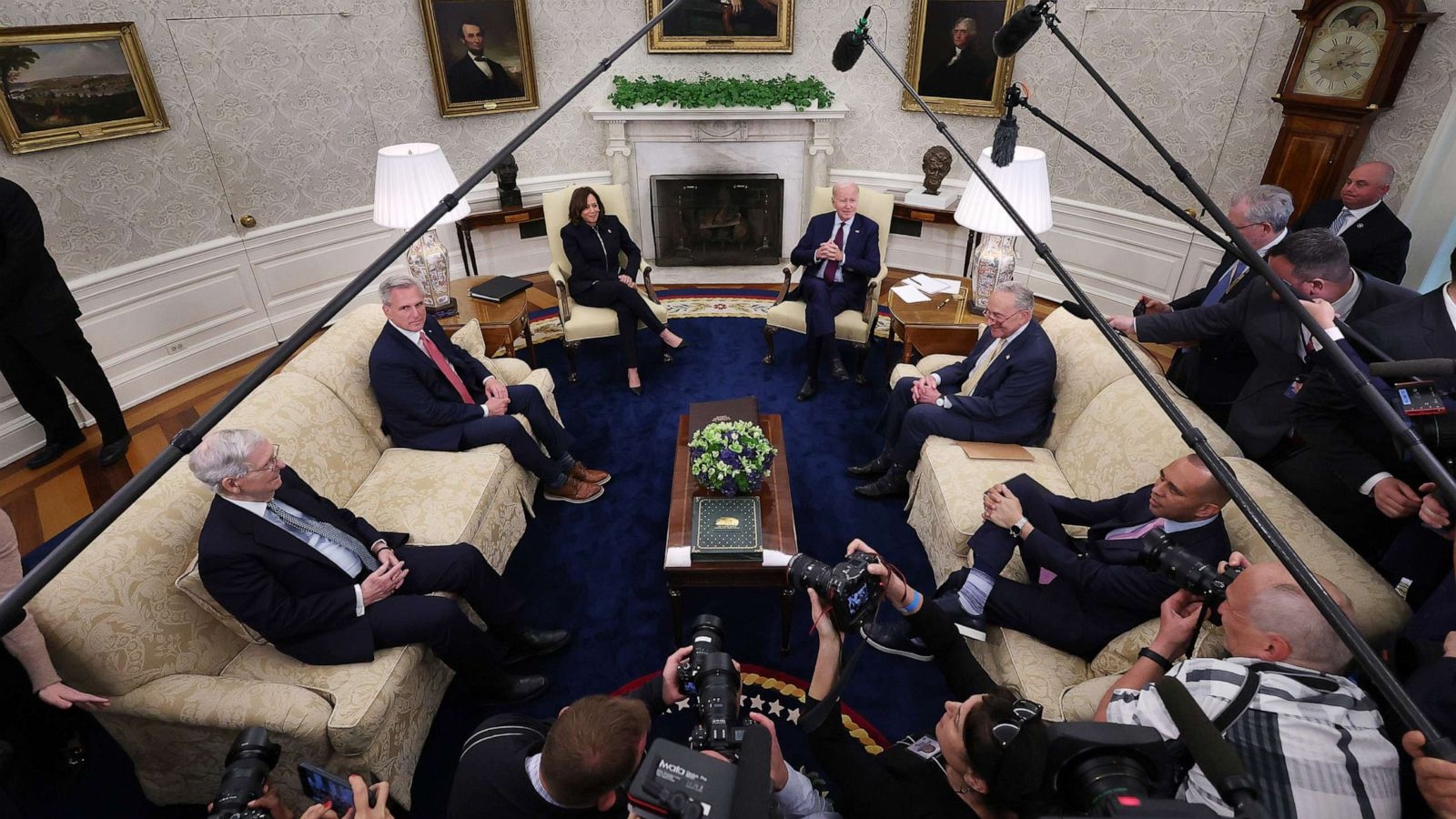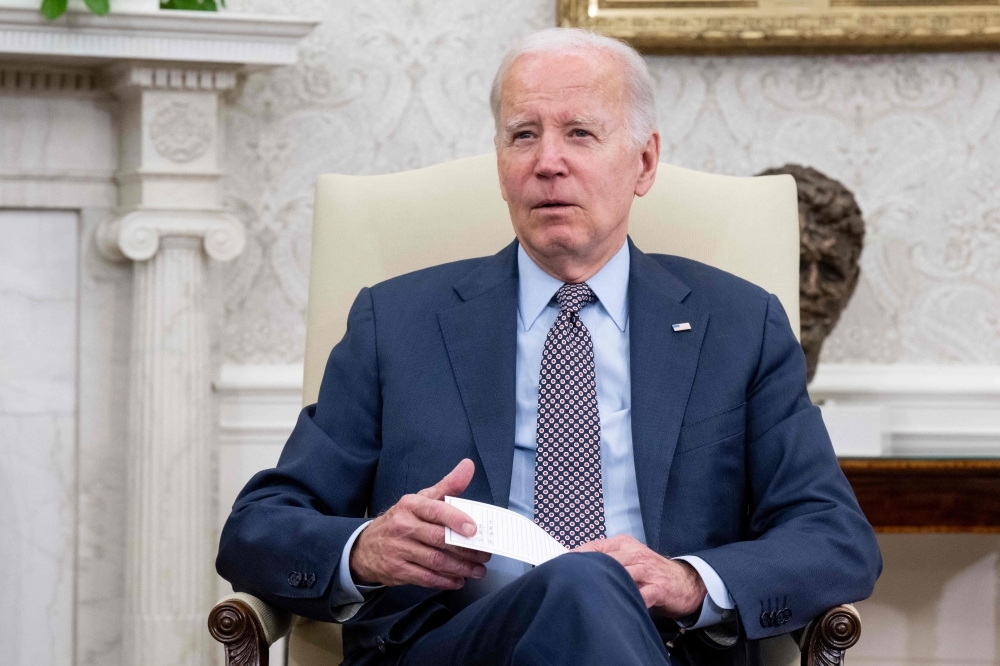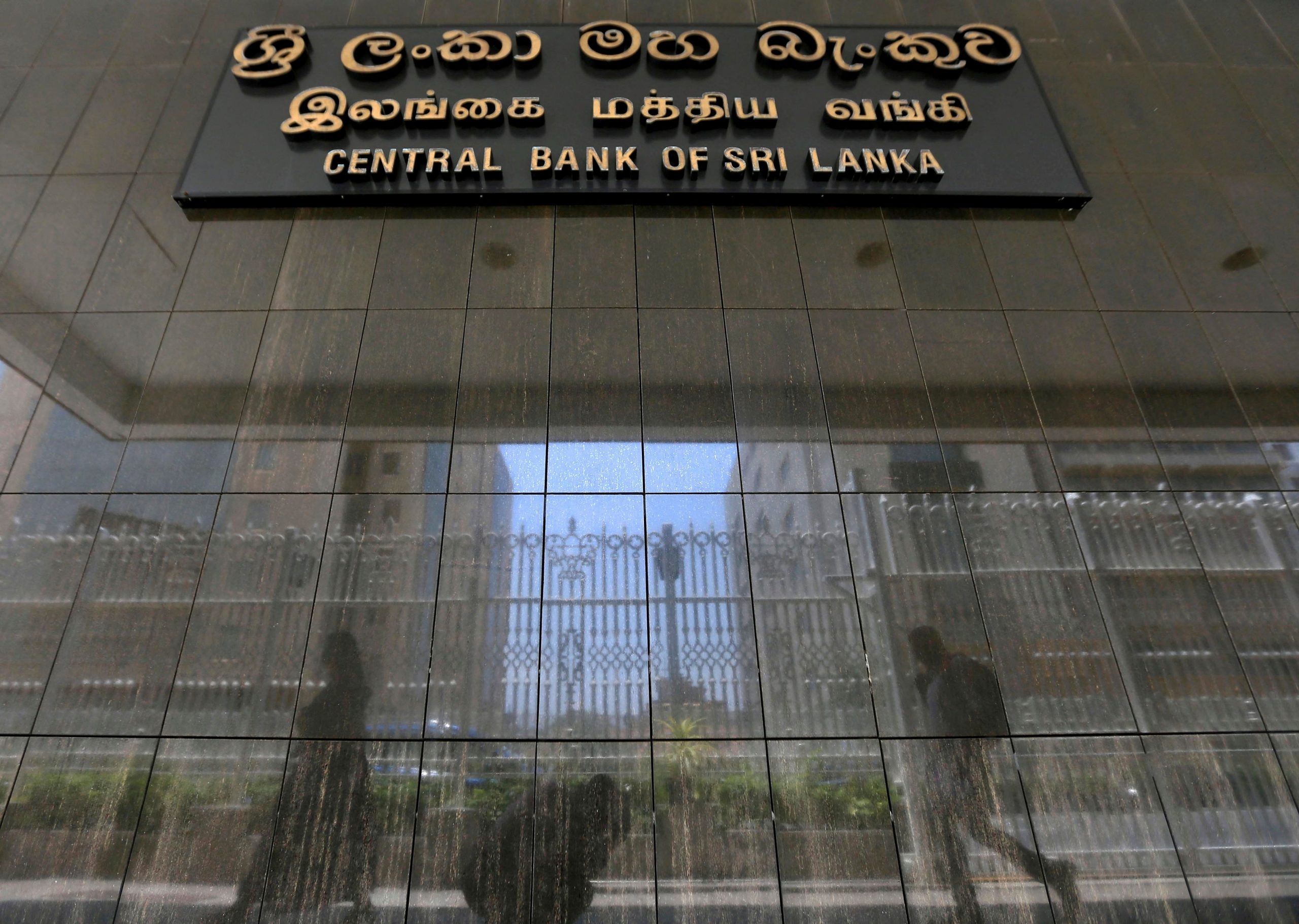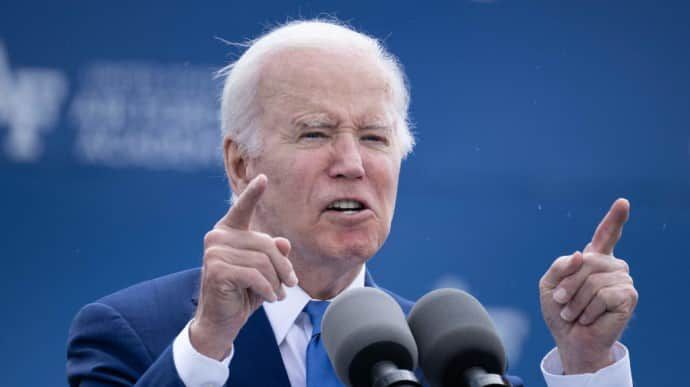In a crucial attempt to avoid an impending financial disaster, the White House and Republican congressional representatives are slated to reconvene today to strike a deal on lifting the government’s $31.4 trillion debt ceiling. Time is running out, with a financially catastrophic default looming a mere week away if a consensus isn’t reached.
These deliberations are taking place amidst profound disputes between Democratic President Joe Biden and the Speaker of the House of Representatives, Kevin McCarthy, on pivotal topics like expenditure, taxes, and the prerequisites for anti-poverty schemes. Nevertheless, both sides express hope of finding a shared solution following the prior day’s extensive and fruitful negotiations conducted by their respective teams.
“We’ll persist in resolving this issue, strive to discover a solution,” McCarthy, the leading Republican in Congress, confidently told journalists following Wednesday’s four-hour meeting at the White House.
The risks involved are monumental. The U.S. Treasury Department has cautioned that the United States might deplete its capacity to service its debts as early as June 1st, less than seven days from now, if the debt ceiling isn’t lifted. A U.S. default could destabilize international financial markets and potentially push the nation into recession.
Adding to the urgency, Fitch, the ratings agency, placed the United States’ “AAA” credit rating on negative watch on Wednesday, triggered by escalating political contention over the national debt limit. This is the first instance since October 2013 that Fitch has taken such an action.
In a statement, Fitch underscored the “political gamesmanship over the debt ceiling, the U.S. authorities’ failure to meaningfully address medium-term fiscal challenges … and an escalating debt burden” as downward risks to U.S. creditworthiness.
The prolonged deadlock has unnerved Wall Street, exerting a downward force on U.S. equities and increasing the nation’s borrowing costs.
Given the time necessary to steer any agreement through the Republican-controlled House and the Democrat-majority Senate, lawmakers are feeling the heat to elevate the self-imposed debt ceiling to accommodate the cost of already-sanctioned spending and tax reductions.

Representative Steve Scalise, the second-highest ranking House Republican, indicated that legislators will have three days to examine any debt-ceiling bill before it is brought to a vote. In the Senate, individual members can postpone proceedings for several days.
Even with the impending Memorial Day holiday break, Scalise cautioned legislators to brace for a potential recall to Washington for a pivotal vote.
A key sticking point remains the issue of spending. McCarthy insists that any agreement must restrict discretionary spending next year and cap spending growth in the following years to decelerate U.S. debt expansion. On the other hand, Biden has suggested freezing spending at present levels next year and has proposed several tax hikes as a mechanism to control the debt.
Moody’s, another credit rating agency, has warned that it might reevaluate its top-tier rating for the U.S. government if a settlement isn’t achieved. A similar impasse in 2011 led to a rating downgrade by competitor agency S&P Global.
However, finding middle ground remains challenging. Hardline House Republicans are pressuring Biden to consent to significant spending cuts they passed last month, while some Democrats accuse Republicans of exploiting the economy to advance their objectives.
Democratic Representative Ilhan Omar accused the Republicans in a press conference on Wednesday, stating, “They are trying to waste time, play games, and ensure we default because they think it will somehow give them a political edge.”
Although Biden initially maintained that he would not negotiate on raising the debt limit, he has since reversed his position and initiated discussions with McCarthy in recent weeks.
©traders-news.online










